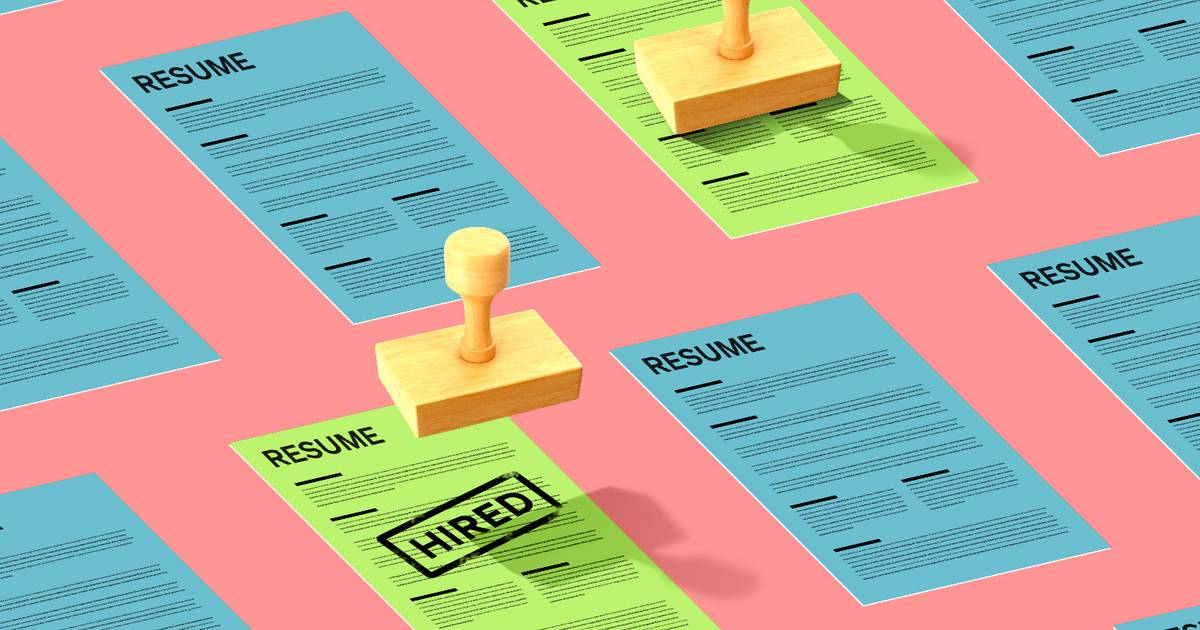
Skills-based hiring just got its big break on the silver screen.
Last month, Netflix debuted Untapped: Closing America’s Opportunity Gap, a documentary about six young adults vying to land internships at large employers in NYC. The film, produced by Workday and LeBron James’s and Maverick Carter’s SpringHill Company, captured a snapshot of the work of Year Up United, an NYC-based nonprofit that helps more than 285 employers, including Amazon, JPMorgan, and Bank of America, recruit the young professionals who complete its year-long professional development program.
Untapped highlighted a revelation that some companies have had in shifting to skills-based hiring: College degrees are not the only mark of top workers, and companies that continue to rely on them are missing out on a huge swath of talent.
“People are willing to work for it. But it’s shocking the degree to which people are stuck,” Byron Auguste, CEO and cofounder of Opportunity@Work, told HR Brew at a screening of the documentary hosted by Workday in September. “The wonderful thing about Year Up is it creates a setting where it can coach you and everything into what you need to do, and then actually get you there because they’ve got all these employers with them. To me, that’s the emotional part of the film.”
Tapping into opportunity. The six individuals featured in the film are just a few of the more than 45,000 young professionals who have gone through Year Up United’s programs across the country since its founding nearly 25 years ago.
While the NYC-based nonprofit offers myriad services, it’s best known for its workforce training programs, which helps more than 4,400 students annually develop professional soft skills and hard skills in fields including IT, cybersecurity, customer service, and data analytics. In addition to these development programs, the organization also operates other services, including an advisory practice called “Grads of Life” that helps employers with skills-based hiring and talent management strategies, and YUPro, a for-profit B Corp placement services firm that helped more than 75 companies hire talent last year.
Around 80% of all Year Up grads have found employment or have enrolled in postsecondary education within four months of completing the program. Program graduates earned an average starting salary of $53,000, according to its annual report. And a 2021 evaluation from the Office of Planning, Research & Evaluation of Year Up and similar programs found that the salary for graduates six years after completing the program was 30% higher than those who hadn’t participated.
Quick-to-read HR news & insights
From recruiting and retention to company culture and the latest in HR tech, HR Brew delivers up-to-date industry news and tips to help HR pros stay nimble in today’s fast-changing business environment.
“It’s a good entry point and a big lift from where the young adults we serve start,” Ellen McClain, Year Up United’s CEO, told HR Brew. “To access that with a high school diploma or a GED and some excellent training and the opportunity to prove yourself on the internship, is a wonderful path. And it’s a great thing for corporate America and a proven approach to economic mobility in this country.”
Facing economic headwinds. That said, the company has dealt with challenges in recent years. In 2023, Year Up placed fewer interns than in previous years, the organization disclosed in its annual report, citing macroeconomic challenges, including a slowing economy and layoffs in sectors it serves, particularly tech.
“We have had some challenges, especially when companies are going through widespread layoffs,” she said. “We do deal with some ups and downs in the economy, but the goal is that every student who starts gets an internship.”
In response to these headwinds, Year Up reorganized some of its corporate engagement team that works with employers and students, and developed more sophisticated labor market insights to stay ahead of similar challenges in the future. The organization is also aiming to offer its career development pathways in all of its markets.
“No matter how up and down the economy, we want to develop our ability to predict where the jobs are going, to try to train into them at the right time, in the right place, with the right company,” McClain said. “A lot needs to go well to make that happen.”
Year Up is “holding steady” this year, and expects to welcome more participants in 2025, McClain said. But even if it continued business as usual, she insists there would still be plenty of opportunity, noting that there were 49,000 job openings in the fields Year Up trains for in the last year.
“That’s reason to be optimistic,” she said. “How do we go after that in the most effective way possible? We think we’re organized to do that.”
